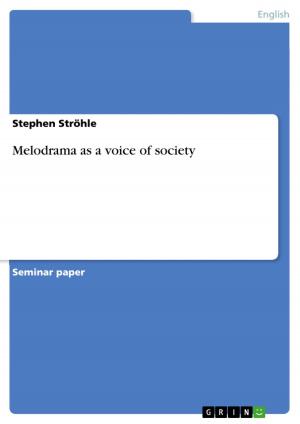EU Development Aid and Good Governance
An analysis with reference to Zimbabwe
Nonfiction, Social & Cultural Studies, Social Science| Author: | Erik Plänitz | ISBN: | 9783640565412 |
| Publisher: | GRIN Publishing | Publication: | March 16, 2010 |
| Imprint: | GRIN Publishing | Language: | English |
| Author: | Erik Plänitz |
| ISBN: | 9783640565412 |
| Publisher: | GRIN Publishing |
| Publication: | March 16, 2010 |
| Imprint: | GRIN Publishing |
| Language: | English |
Research Paper (undergraduate) from the year 2010 in the subject Politics - International Politics - Topic: Development Politics, Halmstad University, course: International Relations, language: English, abstract: The European Union is the greatest donor of the world. Until 2002, the south African country Zimbabwe was a recipient of European development aid. Due to major disagreements over key issues, such as human rights and democratic principles, the European Union has partially suspended official development cooperation in 2002. Zimbabwe has not longer fulfilled the criterions of Good Governance, which is demanded by the European Union. In order to restore the respect for human rights and a democratic way of governance, the EU has posed sanctions and resolutions. This study provides a study of the outcomes of these repressive measures. Have the sanctions led to a better governance performance in Zimbabwe? Before the terms Governance and Good Governance will be explained into detail, the first part of the thesis is spotting out the European Union as a normative actor.
Research Paper (undergraduate) from the year 2010 in the subject Politics - International Politics - Topic: Development Politics, Halmstad University, course: International Relations, language: English, abstract: The European Union is the greatest donor of the world. Until 2002, the south African country Zimbabwe was a recipient of European development aid. Due to major disagreements over key issues, such as human rights and democratic principles, the European Union has partially suspended official development cooperation in 2002. Zimbabwe has not longer fulfilled the criterions of Good Governance, which is demanded by the European Union. In order to restore the respect for human rights and a democratic way of governance, the EU has posed sanctions and resolutions. This study provides a study of the outcomes of these repressive measures. Have the sanctions led to a better governance performance in Zimbabwe? Before the terms Governance and Good Governance will be explained into detail, the first part of the thesis is spotting out the European Union as a normative actor.















